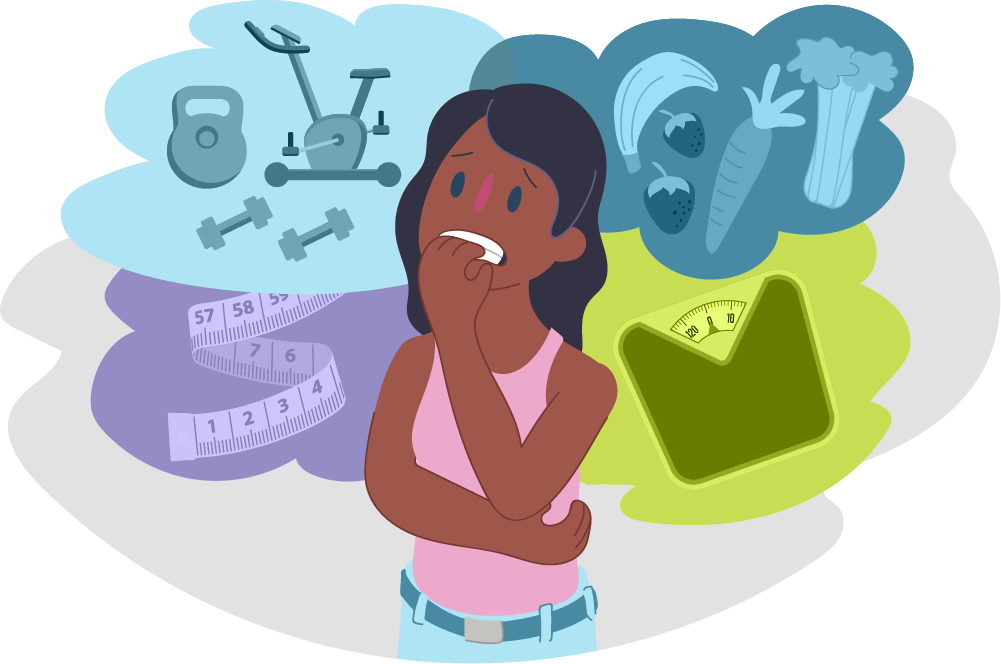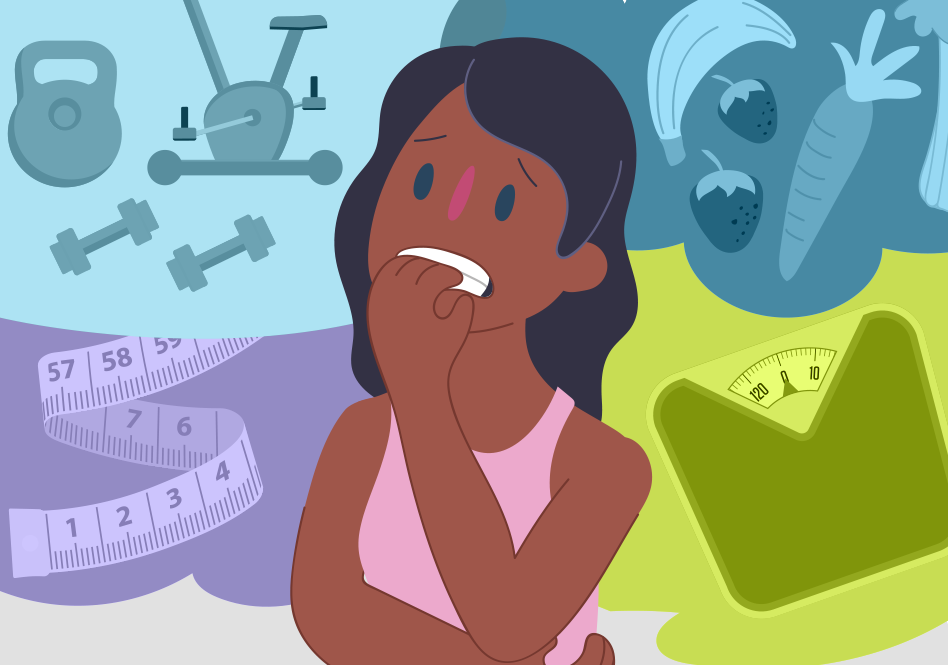Eating disorders
Eating disorders are serious and can affect anyone. They can take many different forms and have a significant impact on someone’s health. With treatment recovery is possible.
Content Warning: this article contains information about mental health which may be distressing or triggering.

What is an eating disorder?
It’s more than just eating too little or too much. It’s when someone has an unhealthy preoccupation with eating, exercising, or their body size or shape.
Here’s what you need to know about eating disorders:
Eating disorders can’t be identified by someone’s size or shape
Both males and females of any age can develop an eating disorder
Eating disorders are not a lifestyle choice, a diet gone wrong or a cry for attention
Sometimes eating disorders develop as a way for someone to feel in control of emotions or something that is happening in their life
Eating disorders can have a lifelong impact on someone’s health
Eating disorders are very serious and it’s important to get support
Help is available and recovery is possible
Types of eating disorders
Eating disorders can come in many forms. Here are the most common:
Anorexia Nervosa
Bulimia Nervosa
Binge Eating Disorder
Other Specified Feeding or Eating Disorders (OSFED)
How to tell if your relationship with food is becoming unhealthy
You may notice changes in your:
Recognising the signs and symptoms
Here are some of the most common warning signs and symptoms
Changes in your appearance:
Sudden weight loss or gain
Appearing tired and sluggish
Changes in your clothing style
Changes in your hair, skin and nails
Changes in emotions:
Unhappy with your body shape or size
Feeling anxious, upset or guilty after eating
Moody, irritable or have low energy
Nervous or out of control around food
Feeling sensitive when people are talking about food or weight
Changes in the way you behave:
Stealing or hiding food
Feeling faint, dizzy or weak
Exercising often or excessively
Vomiting after meals or using laxatives
Eating in secret or avoiding eating with others
Dieting, overeating, fasting or changing the way you eat
Feeling cold all the time – even in warm weather
Changes in the way you think:
Difficulty concentrating
Intense fear of gaining weight
Distorted view of your body
Worrying about what you eat or the way you eat
Finding it hard not to focus on food, eating or body weight
Who can help?
If you’re concerned about your eating habits, it’s important to seek support as soon as possible.
Here's who can help:
You're not alone
With help you can start to change your relationship with food.
If you notice any of these signs or you’re concerned about your eating and exercise habits – we’re here to help.
Give us a call, start a WebChat or email us today.
If you are looking for more digital services and resources, check out Head to Health.
Check these out too:
Looking after yourself
If you’re juggling lots of things like work, study and relationships, ...
READ MECoping with emotions
Whether you’re dealing with anger, sadness, frustration or anxiety - it’...
READ MESelf-harm
Sometimes people self-harm as a way to cope. Learn what self-harm is, ...
READ METalking helps! We’re here for you.
No problem is too big or too small.
We're here 24 hours a day, 7 days a week






